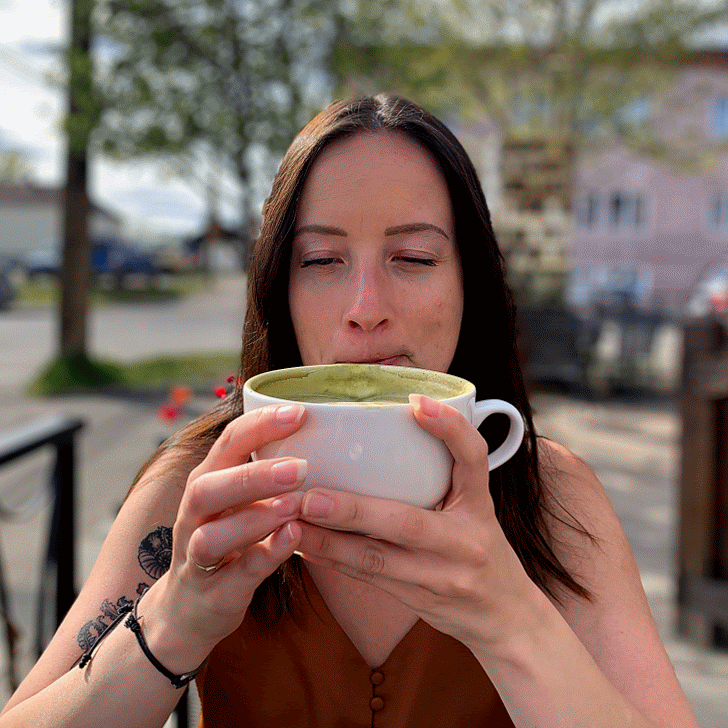Supplementing Iodine
a link between supplementing iodine and hashimoto’s
For fun, I did a google search for “How to heal hypothyroidism naturally”. As a nutritionist, you find yourself doing this just to see what kind of information people have access to. I love to see some of the recommendations that pop up, for example going gluten-free and reducing your toxic load but I cringe at supplementing iodine for hypothyroidism.
The thyroid absorbs available iodine from the bloodstream to produce thyroid hormones, and thyroid cells are the only cells that can absorb iodine. T3 is the usable form of thyroid hormone, which contains 3 iodine atoms, and T4 is the less-usable counterpart that contains 4 iodine atoms that need to be converted to T3. Using this basic logic and looking at North America’s historical relationship with iodine deficiency and goitre, supplementing iodine seems to be the obvious solution. While it is true that iodine deficiency can cause hypothyroidism, it is very unlikely that this is the root cause of modern hypothyroidism.
The most common causes of hypothyroidism are autoimmune conditions, Hashimoto’s Thyroiditis and Graves’ Disease. Iodine and selenium work together in a delicate ratio that can be bombarded by anything other than whole foods supplementations of the two. Dietary selenium (ie: brazil nuts) plays a key role in autoimmunity for its ability to regulate excessive immune responses and ease chronic inflammation. If either selenium or iodine are supplemented in improper dosages, especially in the case of selenium deficiency the result may be an autoimmune reaction or a “flare”.
Iodine-induced hypothyroidism and goitre are highly sensitive to iodine supplementation. Some new research is starting to shine a light on how and why our selenium/iodine balance has been disturbed.
To understand this, we have to look at history. Prior to colonization, indigenous peoples of turtle island lived in a gift economy, or a trade economy. Sea salt was a valuable form of currency. In fact, the word “salary” is derived from the word “salt”. The first record of indigenous peoples teaching settlers how to make salt is recorded in 1654 and it was noted that they had been doing this for at least 500 years prior. Sea salt, sea vegetables and fish had been successfully traded among inland peoples so there was no instances of goiter and thyroid disease. Settlers didn’t get the memo and started seeing a huge rise in thyroid disease. In 1924, experts recommended adding iodine to table salt which finally put a halt to this thyroid disease epidemic. Cases of goiter went from 30% to 2%. In 1908, the sanitary properties of iodine were discovered and surgeons began using iodine sanitizer to sterilize skin before surgeries. Since that time, the uses of iodine sanitizer have expanded to cleaning produce and being used in most restaurants to clean dishes. Iodine is high in dairy products because it is used at a conditioner, stabilizer and texturizer for the milk and a sanitizer for the teats. Many fortified or “enriched” breads now have more potassium iodide added to them than an iodine supplement.
The first case of Hashimotos was discovered and coined in 1912. Correlation does not equal causation, meaning that just because Hashimotos appeared around the same time we started messing with iodine, doesn’t necessarily mean that is the problem. However, a 2017 trial proved a direct relation to thyroid disease with excess iodine intake. An in vitro study from 2019 showed that excess iodine caused pyroptosis (cell death) in the thyroid cells of people with hashimotos.
Women have a lower tolerance to iodine and more difficulty detoxing iodine than men so it is a theory that the use of iodine sanitizer is a cause for Hashimotos being much more prevalent in women than men. Those with coastal ancestry share genetics that have a much higher tolerance to excess iodine uptake, which partially explains why reactions to iodine supplementation are so unpredictable.
That said, some passionate doctors like to believe iodine excess or deficiency is the cause of all thyroid disorders, but there are many pathways that lead to thyroid disease with gut dysbiosis being the most likely. (See: thyroid-gut-axis) We’re going to need to see a lot more research to know the ins and outs of autoimmune disease though.
My Recommendation
Eat your micronutrients instead of supplementing them, especially if you have Hashimotos. Include iodine-rich foods such as sardines, dulse and sea salt. Whole foods are tolerated much better than isolated supplements. If you have a thyroid disorder and are planning to conceive, make sure you are taking a prenatal that does not contain iodine but be sure to include selenium and iodine-rich foods during this time.
References:
https://www.ncbi.nlm.nih.gov/pmc/articles/PMC3277928/
https://methods.cochrane.org/equity/projects/evidence-equity/e4e-series/nutrition/iodine
https://www.ncbi.nlm.nih.gov/pmc/articles/PMC5345857/
https://www.frontiersin.org/articles/10.3389/fendo.2019.00778/full









